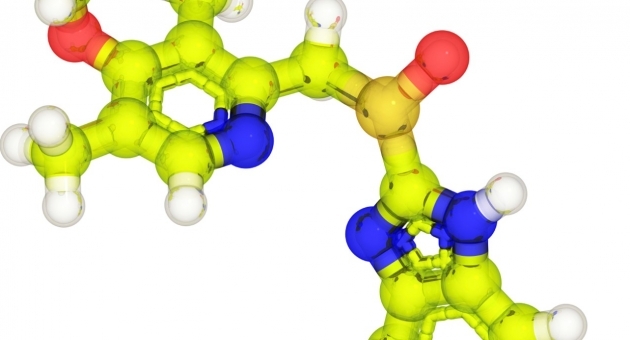Posted October 31, 2014
Temple study suggests a novel approach for treating noncardiac chest pain

Getty images
New research authored by Temple University Hospital gastroenterologist Ron Schey suggests a novel approach to treating noncardiac chest pain.
Each year, an estimated 200,000 Americans experience noncardiac chest pain. Because the symptoms—which can also include painful swallowing, discomfort and anxiety—often originate in the esophagus, noncardiac chest pain can mimic a heart attack.
New research authored by Temple University Hospital gastroenterologist Ron Schey suggests a novel approach to treating noncardiac chest pain due to esophageal hypersensitivity. The research was presented at the Annual Scientific Meeting of the American College of Gastroenterology.
Current treatments for noncardiac chest pain include pain modulators such as selective serotonin reuptake inhibitors. Schey’s novel treatment involves a drug called dronabinol, a cannabinoid receptor activator that has traditionally been used to treat nausea and vomiting in HIV patients and for cancer patients undergoing chemotherapy.
In a pilot study involving 13 patients with noncardiac chest pain, Schey and his research team found that patients who were given 5 milligrams of dronabinol twice daily for four weeks fared better than patients who took a placebo, or dummy pill. Those getting dronabinol experienced improved pain tolerance and decreased frequency and intensity of chest pain. In addition, no significant adverse effects were reported.
“This novel study has promising findings in future treatment for these patients,” said Schey, associate professor of medicine at Temple University School of Medicine, who conducted the research while on staff at the University of Iowa Hospitals and Clinic. Schey joined Temple in 2014 and analyzed the data at Temple along with Zubair Malik, a first-year fellow in Temple’s Section of Gastroenterology.
While the results were encouraging, according to Schey, the pilot study was very small and not designed to test dronabinol against current therapies for noncardiac chest pain, which have a 40 to 50 percent response rate in alleviating symptoms. Schey said dronabinol likely helps to diminish pain by activating cannabinoid receptors in the esophagus that decrease sensitivity.
Schey said a larger-scale study on the effects of dronabinol on noncardiac chest pain will be initiated in the near future at Temple.
The American College of Gastroenterology picked the Temple research to be among the “most newsworthy” studies presented at the conference because the findings have an impact on GI patient care.